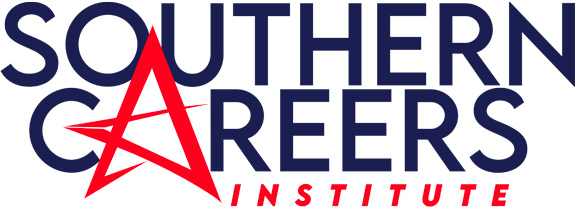For most prospects, an allied health career is a rewarding career path to help make a difference in individual communities. Are you thinking of pursuing a career as an allied health professional?
Not surprisingly, options vary, from being a medical assistant or medical office specialist to pharmacy technicians, a nurse aid, or medical billing and coding specialist. Each has its unique set of benefits and competitive advantages. Read further to discover what allied health career path is right for you.
What Is Allied Health?
It is an umbrella term covering a wide range of nonmedical health professions that are not doctors. An Allied Health Professional (AHP) is a healthcare practitioner, such as an audiologist or physiotherapist. These professionals typically work as part of a multidisciplinary healthcare system.
Allied Health Career
There are multiple opportunities for prospects searching for an allied health career path, each with unique requirements. These allied health career paths include:
- Medical assistant
- Pharmacy technicians
- Medical billing and coding specialist
- Nurse aide
- Medical office specialist
Medical Assistant
A medical assistant position holds a mix of administrative duties and direct patient care. This profession records vital patient signs and compiles medical histories. A medical assistant’s duties differ from state law, depending on the scope of their duties. Additionally, a medical assistant can give injections, provided they have specific training and experience.
Medical assistants are integral members of the healthcare team. They are in charge of helping doctors and nurses, thus improving operational efficiency.
According to a report by National Healthcareer Association (NHA), 62% of employers claim that certification is the leading criterion employers seek in prospective medical assistants. Besides certification, employers look for three key soft skills: verbal communication, critical thinking, and professionalism.
While most states lack formal education requirements for medical assistants, the majority of these professionals have some form of post-secondary education/ training. Being a medical assistant is a fast and lucrative way to enter the growing healthcare sector.
A medical assistant can work in:
- Hospitals
- Physicians’ offices
- Outpatient clinics; and
- Other healthcare facilities.
Pharmacy Technicians
According to the Bureau of Labor Statistics (BLS), a pharmacy technician (a pharmacy tech) works under the supervision of a licensed pharmacist to dispense medication for health professionals and customers. Being a pharmacy technician often involves a reasonable amount of administrative work and good customer service. Good customer service skills are mandatory, since a pharmacy tech will interact with customers to answer their billing questions and help them navigate insurance.
The BLS estimates a 4% employment growth for pharmacy technicians between 2020-2030.
Allied health career pharmacy technicians can work in:
- Pharmacies
- Hospitals
- Drug stores
- Department stores
- Grocery stores
- Lastly, general merchandise stores
You must have active registration with the Texas State Board of Pharmacy (TSBP) to perform a technician’s duties in Texas.
Medical Billing and Coding Specialists
Experience in medical billing and coding can widen the range of options available for prospective employees. Further, medical coding and billing specialists act as liaisons between medical offices and insurance companies.
These specialists help a healthcare facility manage insurance claims, payments, and invoices. A medical billing and coding specialist’s daily roles include:
- Tracking payment
- Correcting rejected claims
- Preparing and sending invoices or claims for payment
- Properly coding services, diagnoses, procedures, and treatments
- Following up with insurance companies and patients concerning outstanding bills.
Requirements for having an allied health career as a medical billing and coding specialist include:
- A high school diploma/ equivalent GED. While bachelor’s or master’s degrees aren’t mandatory, they are advisable since they offer a competitive advantage.
- Completed medical coding training at an accredited institution.
- Get certification which may include Certified Professional Coder (CPC), Certified Coding Associate (CCA), or Certified Coding Specialist (CCS).
Medical billing and coding specialists often work in hospitals and outpatient clinics.
Nurse Aide
A nurse aide, also known as a nurse assistant, provides healthcare and support to patients in medical facilities. Their primary role is to provide basic physical assistance to patients. Nurse aides’ tasks and duties include:
- Reporting to the nurse
- Positioning and turning bedridden patients regularly
- Helping with a range of motion exercises
- Taking vital signs
- Bowel and bladder care
- Mouth and hair care
- Feeding patients
- Patient’s hygiene
- Lastly, dressing patients
A nurse aide ideally substitutes or shadows the main nurse, with limitations to what they can do. To become a Certified Nurse Aide in Texas, you must undergo training and evaluation through a state-approved nurse aide training and competency evaluation program. Becoming a nurse aide can be an effective stepping stone to being a nurse with all the benefits and privileges.
Medical Office Specialists
A medical office specialist provides non-clinical medical support in healthcare and medical practice facilities. Duties include answering calls, updating medical records, and scheduling appointments. A medical office specialist can also be asked to verify medical insurance information and key details into the electronic billing system.
They can work in all health practices, including hospitals, private practices, and clinics. Typical requirements for a medical office specialist include:
- Administrative medical assistant certification
- Knowledge of basic medical terminology and inventory management
- Proficiency in integrated electronic health records and medical billing software
- Ability to obtain patient information, answer calls, schedule appointments, and relay messages
Benefits of Allied Health Careers
- High job satisfaction. Regardless of the allied career path you choose, these professions put you in a position to help others, which can be satisfying. High job satisfaction can motivate you to seek further training and climb the professional ladder.
- Job security. The healthcare industry is well established and a necessity. This makes every professional in the industry enjoy job security. Furthermore, allied health is one of the fastest growing job sectors in the US economy.
- Flexibility. Allied health careers are highly flexible. Training for these jobs is regularly quick. Also, there are plenty of jobs available in different sub-fields. For instance, if you pursue a medical assistant program, you can be flexible enough to work in different roles.
Choose a Reliable Partner
A career in the allied health sector can be fulfilling regardless of the field you end up in.
Southern Careers Institute offers top-of-the-line certification programs to help train for a new career. Indeed, as a well-recognized and accredited institution, we provide an impeccable learning environment and a feel of a real-world job application.
We can help prepare you adequately for your allied health career path. Ready to enroll? Contact us to learn more about allied health programs at SCI’s campuses in Texas.
This article was published on: 10/4/22 11:00 AM
* SCI does not guarantee employment or a starting salary upon graduation, completion, or withdrawal from SCI. As an accredited post-secondary institution, SCI has various federal financial assistance programs available for students who qualify and are enrolled in SCI programs. This does not apply to seminar students.
GI Bill® is a registered trademark of the U.S. Department of Veterans Affairs (VA). More information about education benefits offered by VA is available at the official U.S. government Web site at http://www.benefits.va.gov/gibill.

